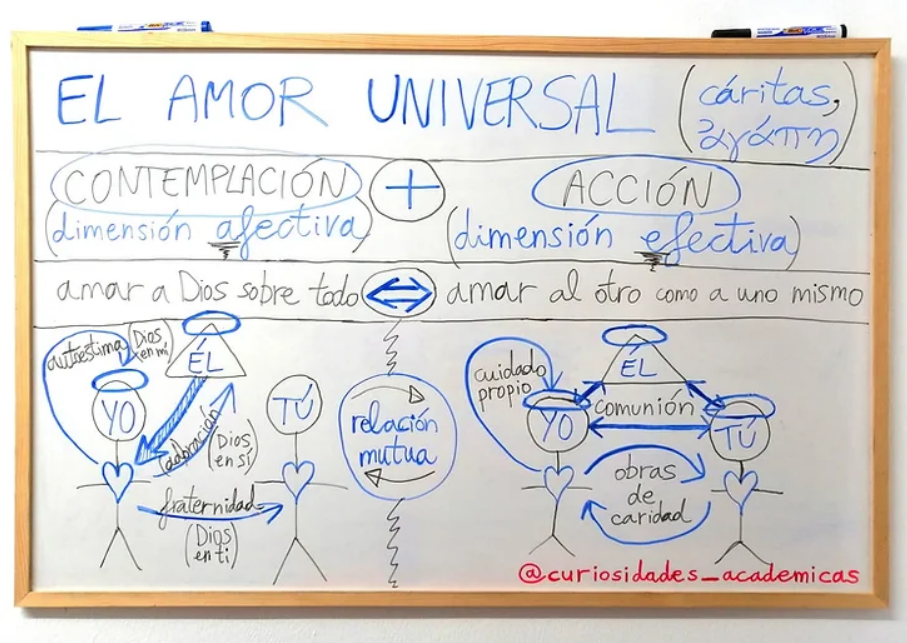Human beings love because God loves them; in fact, this love can extend to the whole world without condition. It is aquestion of divine or superhuman charity: human love empowered and perfected by God’s grace. With this infinite, free andundeserved gift, in time we can cultivate, on the one hand, a contemplative life -affective dimension of love-, coming tosee and love God in us (self-esteem), in the other (fraternity) and in himself ([ad]prayer). On the other hand, based on theabove, an active life -EFFECTIVE dimension of love-, which, passing from being to doing, impels us to make concrete inactions what we have contemplated: self-care (in relation to self-esteem) and corporal and spiritual works of mercy (inrelation to the fraternity), maintaining and, in fact, fostering communion with God, both ours and that of the brothers(guaranteed at all times by prayer). The process is also reciprocal: effective action in turn nourishes affective contemplation.
In the Gospel this vital attitude is expressed with the supreme law of Jesus Christ: “You shall love the Lord your God with allyour heart, with all your soul and with all your mind […] but the second is equivalent: You shall love your neighbor asyourself” (Mt 22:37-39). Here we can also see the indivisibility of divine love: appreciating oneself, loving others and lovingGod are in fact three moments of the same and only act of charity, which has God himself as its origin and end. We have themain example in the active Martha and the contemplative Mary (cf. Lk 10:38-42) and, of course, in our own Dominicancharism: “To contemplate and to give to others what we have contemplated”.
fr. Berardo Sastre Zamora OP
Province Hispania
@CuriosidadesAcademicas




